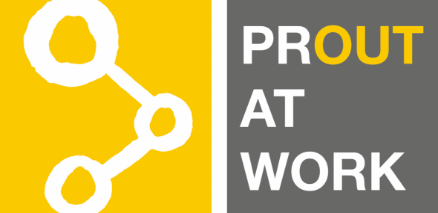
MYSTORY with …
Mano
Berlin
“To Tell the truth, I never came out because i was never hidden in the closet.”
Published: October 2023
There are certainly a multitude of people and events that have marked, educated, shocked and inspired me. My parents and my family are my primary role models. Fortunately, they tought me essential basics such as courage, respect and humility. They nurtured the roots on which I can grow. My parents certainly knew about my homosexuality before me, but they never asked me the question. Out of modesty, fear or respect, I don’t know. Anyway, I like to think it’s out of love. To tell the truth, I never came out because I was never hidden in the closet.
I knew at a very young age that I was different from others, by my physical appearance, my origins and also my attraction to boys.
I am very lucky to have a loving and respectful family. I would like other less fortunate people to access better possibilities.
Today as Doctor of Pharmacy I work at Parexel International as project director for compassionate programs. These programs provide patients with serious or life-threatening conditions access to unapproved products when no comparable alternative treatment options exist – while ensuring patient safety and superior delivery.
I identify as queer and believe that a diverse, equitable and inclusive world leads to better outcomes for and with everyone. It expands access to better health care, creates opportunities and expands human rights for traditionally underrepresented patient groups.
Most if not all clinical trials focus on male/female behaviors against drugs for purposes of safety and efficacy and to better dose patients. Failure to collect gender identity information means that there may be certain diseases, conditions and risk factors that we are not aware of. Unfortunately, traditional study structures, the templates we use for protocols and informed consent documents, and the data we collect are often designed in ways that do not address the specific needs and demographics of the transgender community.
Our priority commitment to patients must motivate us to recruit a diverse group of patients that represent our society. Indeed, we develop methods, trainings and documents to promote and improve the enrollment of LGBT*IQ patients in clinical drug trials and compassionate programs. There is a need to educate healthcare professionals to encourage diverse patients to participate in clinical trials, including transgender and non-binary people.
We need trust and respect of transgender and non-binary communities towards their healthcare professional in the context of clinical research.
DEAR mano, Thank you very much for YourStory!
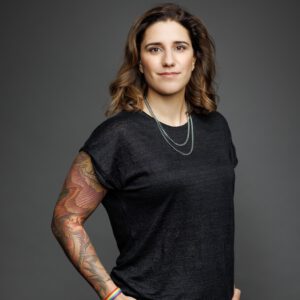
MYSTORY with …
alex
34 Years, fRANKFURT
“It was Black trans* women who educated me about
our community’s history and present, the privilege
of being queer in Europe and about the long
way we have to go to eradicate discrimination…”
Published: September 2023
Privileges, Education & Coming outs.
I struggled to sit down and write this. It often feels like I don’t have something meaningful to share, but when it comes to my coming out story, it also feels like it was just super uneventful. It is a super privileged position unavailable to many members of our community who have to fear for their safety if they come out. I wish for all members of our LGBTQIA2S+ community to have uneventful coming outs and possibly even no need at all for coming out in the future.
When I was 15 years old, I realized I was bi. I cared more about Xena, Warrior Princess and her soulmate situation with Gabrielle than I did about whatever straight girls my age were supposed to care about. I was attracted to men and women and didn’t know at the time that the gender spectrum held many more beautiful expressions.
Today, I would describe myself as pan or omni if we must have a label – to me, I’m simply queer.
I’m not attracted to only one gender identity. I just didn’t know because there wasn’t a lot of queer representation back in 2003.The L Word came out in 2004, and while it hasn’t aged well and is not a great example of an intersectional approach, it changed my world at the time, as did The L Word podcast.
I told my mom very soon and it wasn’t a big deal. Mostly because she’s super tolerant, but also because it probably didn’t feel real. I’d never had a boyfriend or girlfriend when I lived at home.
But I must have been worried about her reaction because I kept my first girlfriend a secret. I like to think that this wasn’t just because of her gender but also because we met online, had not met in person as there was an ocean between us and I associated the whole situation with shame. I was 19 and left Germany to move in with my Canadian girlfriend in Brighton, a queer hotspot in Europe. We broke up after 6 months, and I think to this day, most of my family and friends thought she was a roommate. My second relationship was with a man. No coming out needed there, everyone knew him as my boyfriend.
The queer community remained a fixture in my life. Most of my friends and housemates were queer, I had fallen in love with the art of drag and went to every show that I could. I owe a lot to the queer community; they have helped me overcome whatever was holding me back from normalizing my own queerness while I was celebrating everyone else’s. They have shown me how to accept myself, how to fight for my community, how to exist in a world that assumed everyone is straight. It was black trans* women who educated me about our community’s history and present, the privilege of being queer in Europe, in a queer city, and about the long way we have to go to eradicate discrimination for ALL the beautiful members of our community who face violence and discrimination for simply living the life they were born to live. I was an ignorant 20-year-old and have been educated by their kindness and their fights. I wish I could say that I educated myself – I did, in later years – but that initial education was done by the people most marginalized in our society, and I owe them so much. I became an activist for queer and women’s rights and continue learning to this day. Although there is still a long way to go, one of the biggest achievements of our community is this: An elder trans* woman (she allowed me to say that) said to me last year, “Finally, trans* people can have a future! When I grew up, there simply was no representation and only the threat of dying young. I didn’t know I would be happy; that simply wasn’t in the cards. Today, trans* kids can see a future; we have trans* actors and actresses, athletes, politicians, ordinary couples who are happy.” That being said, we both agree that a lot remains to be done to ensure a safe future for trans* kids and adults.
I met the woman who would become my wife in 2012. We were colleagues first and then close friends for years before our friendship turned into love. It seems to be an unwritten rule that whenever two women are colleagues, not married, and hang out, they must have an affair. At least that was the rumour at work long before we developed romantic feelings for each other. I remember when we went to the cinema, it was the hot topic at work in certain gossip circles for a whole week. Sometimes rumors got back to me about sightings of us doing suspicious things like drinking coffee and sometimes these rumors were even completely made-up.
People were talking about us being together long before we were together, so when we started dating, we didn’t tell anyone but two friends at work. We just “were.”
Same with my mom. She immediately clocked that we were together, and that was that. I just walked through the world, normalizing the fact that I had a girlfriend who then became my wife, and most people respond in kind. I’ve been privileged enough to be working at a diversity-aware company when I fell in love with her, and when I switched companies, I was in senior enough positions that people did not dare to comment anything homophobic to my face. I’m not ignorant though; I’m aware it happened behind my back. I’m aware it happens to others, and I know that homophobia still is rampant in the workplace and our society. After years of remarkable progress for queer rights (which are, fundamentally, human rights), we find ourselves confronted with a historic backlash that threatens to roll back the hard-fought gains of decades, not just in terms of legal protections but also in public perception.
It is a critical moment for LGBTQIA2S+ communities and their allies, demanding swift action and unwavering solidarity.
There it goes. My Coming Out is not a very interesting story. In fact, a lot of what’s interesting is between the lines: about my own internalized stuff, stuff I had to unlearn, and things about which I was completely and utterly wrong. Like when I assumed my until-then 100% straight girlfriend would only treat “us” as an experiment, that she would never tell her family about us, that this new experience would shake her self-image to the point where she’d run. Or that she would have difficulty adjusting to a relationship after being single for 16 years and wouldn’t be able to make space for me. That it wouldn’t last.
We’ve been together for 100 months in July 2023, married for 4 years. She still doesn’t know how to load the dishwasher like a human being, but other than that, we’re fine.
Attacks against our community are increasing on a global scale. Merely celebrating the few rights and limited acceptance that gay, lesbian, and bisexual individuals have achieved is not enough. The TIN* community is far from experiencing the same rights and acceptance. We must continue fighting until discrimination against queer BIPOC, queer people with disabilities, LGBTQIA2S+ migrants, and especially discrimination against our trans and non-binary siblings is eradicated. We cannot settle for mere awareness and visibility. Society is aware of us; what we need is equal protection, respect, and opportunities that should be extended to everyone within our global community.
(Note: *TIN refers to the transgender, intersex, and non-binary community)
Dear aLex, Thank you very much for YourStory!
Together with Marcus Brieskorn from radioSUB PROUT AT WORK Board Member Jean-Luc Vey talked about the Rainbow Chat Deck.
“The idea behind the Rainbow Chat Deck was to develop a tool, through which people can get into an exchange about LGBT*IQ. Through the questions and individual answer options, the cards are also meant for people who have had very little to do with the topic so far.”
You can find the whole interview here (GERMAN):
Rainbow Chat Deck
RECAP
We were pleased to welcome Maxi Pichlmeier as a guest at our PROUT PERFORMER Lunch Talk on Thursday, May 4, 2023.
Click here for the recording of the conversation (German):
about Maxi:
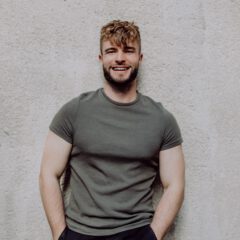
For those who don’t know Maxi, digital media are anything but foreign to him and he has a lot to say when it comes to queer life, politics and media. Because being queer is still political in 2023! Maxi Pichlmeier’s TikTok account is all about queer news, queer politics and the gay community, to which he himself belongs. In his videos he processes his own experiences and wants to bring news to young (queer) people.

MYSTORY with …
Hanna
57 Years, Kreis Euskirchen
“For a very long time I was searching for
myself and at times I confused this with
the search for other, material things…”
Published: March 2023
Night of REalization.
It took 47 years for my life to make any sense at all. That’s how long it took before I was able to admit to myself that something very essential had always been wrong. But it was only then that I fully understood what that was.
Since then, I understand my life, looked backwards at and lived forwards, at all!
As a child, the awareness that I was different was already there, but it was more of a background noise. As time went on, however, these experiences, encounters, and thoughts that always felt so out of place and that I couldn’t really place began to accumulate. These things ran through my life like a red thread and only in retrospect did I really understand them.
For example, the first time I had painted toenails – long before my inner outing – I didn’t think, “Oh, how nice,” but “now it finally looks right!” I wondered about this thought in the same second and didn’t really understand where it came from.
I knew at a very young age that I was different from others, by my physical appearance, my origins and also my attraction to boys.
When I was about 15 years old, I was, as I see it today, very close to understanding what was going on with me. For example, I was waiting for my figure to develop in the same way as my girlfriends and wondered why it didn’t. When I look back now, it was quite clear. But at that time I couldn’t and didn’t want to dig any further…
Many years later, it came to – what I call – my “night of realization.” The night when all the puzzle pieces of my life finally fell into place. The night I then had to understand that I am a woman and always have been. That night when everything suddenly and fully made sense. On the one hand, it was simply great to finally have the explanation for everything that had moved me for decades: “Hanna, you are a woman and always have been. From the first day you were born, you have always thought, acted, and felt like a woman.” On the other hand, the realization of actually being a woman was extremely difficult to master and I oscillated back and forth between euphoria and suicidal thoughts! The topic “trans*” was in the room, but I just did not want to accept that I am also trans*.
And of course, I still had doubts, so I often said to myself, “You are crazy! You are sick! That’s why I found it very special that after my coming out there were some people who told me:
“Hanna, it’s about time that you understand it yourself”!
That helped me to manage these permanent doubts.
The reactions in the rest of my environment were mixed. My parents didn’t find out that their supposed son was actually a daughter, because they had already passed away before I came out. I couldn’t even begin to estimate how they would have handled it. Part of my family had the most difficulty dealing with it, and they tried to completely hide the issue. It wasn’t until years after I came out that they really started to confront the situation. Today everything is fine, but the journey was long and painful.
Simultaneously, I also had to sort out some important things for myself. My internal outing was one thing, but how should I implement it – especially at work? At the beginning, I still believed that I could keep it completely out of my everyday professional life, continue to pretend that I was a man, and only live out my true self in my free time. How naive I was back then… I then looked for a new job relatively quickly. Of course, I also applied for a job as the woman I am. It took a little while, but today I’ve been with my current employer for almost 8 years, and I took over my current position about 2 years ago.
Looking back, I realized for myself that only since I’ve been truly me, I’ve had something like a career. I always knew I was a good employee, but I could never really stand up for myself. I’ve been working openly as a woman for 8 years now, and I find it amazing how far I’ve come professionally. From night auditor to reception manager and service manager within a few weeks, then site manager with a team of 21 employees and now in my dream role.
I summarize it for myself like this: I first had to understand that I am a woman in order to be able to appear as self-confident as men usually do.
My coming out and my transition have of course not only brought changes at work, but also in the relationship with my wife. We have been together for over 27 years now and we have found that despite the changes and the turbulent time during my transition, our relationship has gained in quality and depth! Most of the people who know us from the past simply accept us for who we are and should there ever be any questions, our message is: Love knows no gender!
Today I can say: I have arrived!
For a very long time I was searching for myself and at times I confused this with the search for other, material things – and I had to realize that these things did not really make me happy. I have found true happiness in myself and only since I have found myself, I know what happiness really means!
DEAr Hanna, Thank you very much for YourStory!
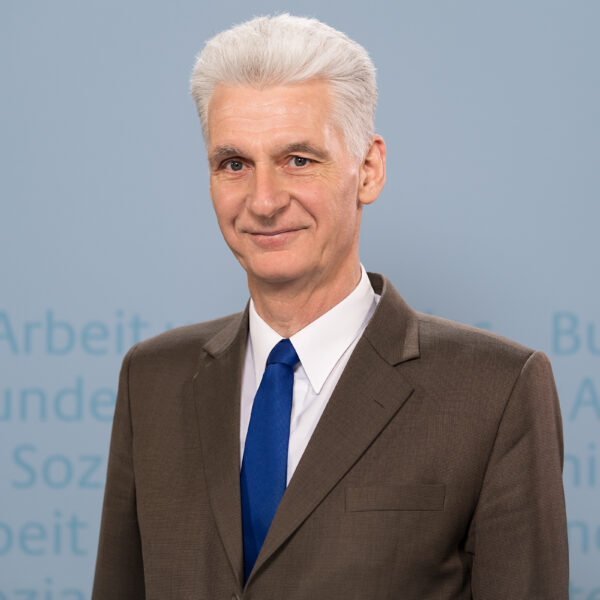
MYSTORY with …
Rolf
64 Years, Berlin
“It has always been important to me
to live with children, to be linked to
the future through children…”
Published: March 2023
Long Ways.
The first time I had sex with a man, it was still forbidden – it happened in what was then West Germany. Shortly after that, rumours about a newly discovered virus began to spread. Deadly. Soon it was clear that homosexual men were particularly affected. The German magazine Der Spiegel wrote about the “Schwulen-Pest,” a translation of the term Gay Plague. We had to be cautious.
Today I live in a different world. I am married to a man. And we have children, too.
This would not have been possible without fundamental changes in our laws during the last 30 years. What seems to be nothing special today was wishful dreaming or even unthinkable back then.
It has liberated me. I came out when I moved to Berlin, quite late, at the age of 35. My life would have been different if I had been clear about who I was and how I loved earlier. I had been living with a vague idea of bisexuality far too long. Today I think this was also because at that time I could not imagine how to combine my desire to have children and my love for men.
I am very grateful to all those in my life who have encouraged me on this path and made it possible. And I am happy for everyone who clearly knows early on and I understand everyone who needs time for this. The open interaction in queer networks can help and encourage people on this way. And these networks now exist in many federal agencies, including the ministries of the Federal Government.
LGBTIQ* employees still experience discrimination in the workplace far too often. Even small talk at the coffee machine can quickly lead to an unwanted outing. Often enough, not only their well-being at work, but also their professional future depends on the reactions of their superiors and colleagues. But only those who feel at ease can deliver the best results at work. Organisations, companies and administrations can actively contribute to an inclusive corporate culture. On INQA.de you can read how networks or interest groups in companies can help to improve the situation of LGBTIQ* employees at work.
Ending discrimination requires the support of those who are not affected. Through active solidarity (allyship), companies can promote diversity in the world of work. On INQA.de you find five tips on how managers and employees can work for diversity and show: We are Allies!
DEAR ROLF, Thank you very much for YourStory!
RECAP
We were excited to welcome Wolfgang Link as a guest at our PROUT PERFORMER Lunch Talk on Wednesday, February 22, 2023.
Click here for the recording of the interview (German):
About Wolfgang:
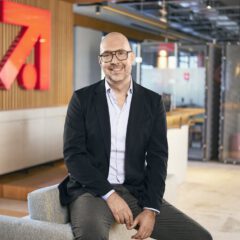
Wolfgang Link was appointed to the Executive Board of ProSiebenSat.1 Media SE in March 2020. He is responsible for all entertainment activities of ProSiebenSat.1 Media SE and is CEO of Seven.One Entertainment Group.
He joined the ProSiebenSat.1 Group in 2009 as Head of Entertainment at SAT.1, and was later responsible for all entertainment formats of the German station group as Senior Vice President, bringing “The Voice of Germany” to Germany, for example. From 2012 to 2016, he was Managing Director of ProSieben, became Managing Director of ProSiebenSat.1 TV Deutschland GmbH in October 2013 and took over as Chairman of the Executive Board shortly afterwards. In 2019, as co-CEO, he was responsible for merging the station brands, content, marketing and distribution operations under the umbrella of the Seven.One Entertainment Group, which will operate in 2020.
After studying communications, arts and psychology, Wolfgang Link initially worked for various musical and live productions. From 2003, as a producer and executive producer at Grundy Light Entertainment, he helped make the “Deutschland sucht den Superstar” format a success, among other things.
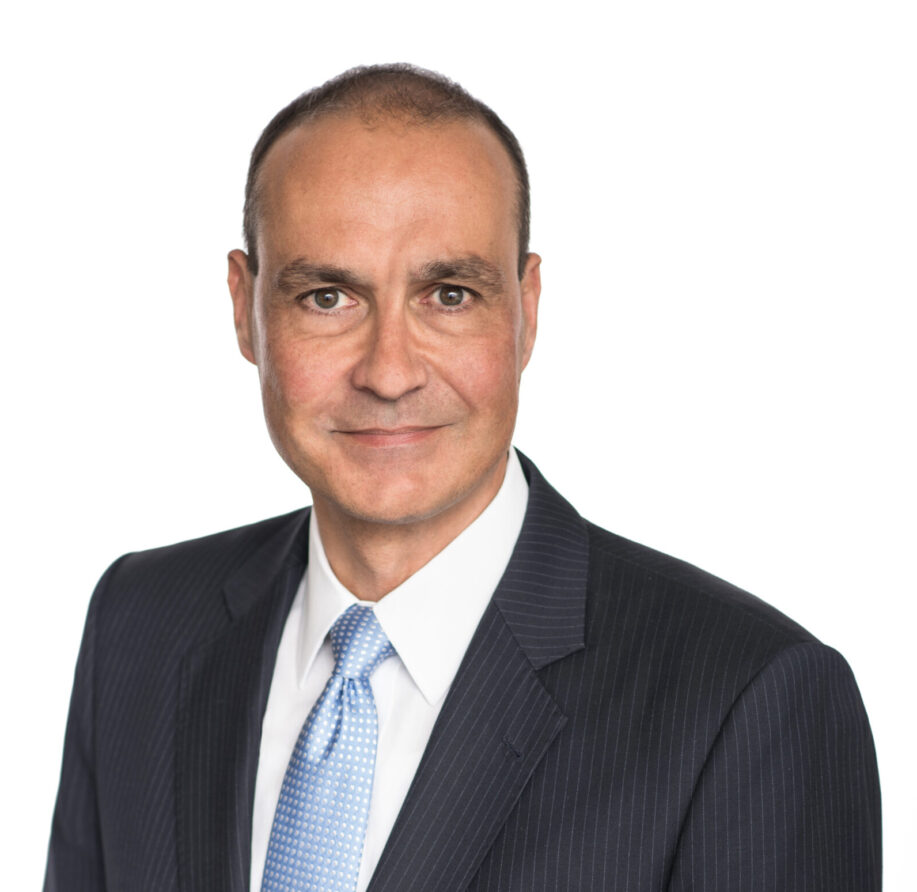
PROUT EMPLOYER Hogan Lovells
“The diversity of our employees is important to me – not only because of my role as Managing Partner and Diversity Sponsor, but also personally. As a company, we function best when people feel comfortable with us and have trust in our working relationship.”
Dr. Stefan Schuppert advises companies in the field of data protection and information technology. He is Managing Partner for the German offices of the international law firm Hogan Lovells and also Sponsoring Partner for Diversity in EMEA. In 2021 and 2022, he was recognized as a PROUT Executive Ally.
Hogan Lovells has been a PROUT EMPLOYER since 2017 – so it has been committed to LGBT*IQ diversity for a long time. Why is this particularly important to you?
Dr. Stefan Schuppert: As a global law firm, we have been committed to equal opportunity, appreciation and respect for many years. The diversity of our employees is important to me – not only because of my role as Managing Partner and Diversity Sponsor, but also personally. As a company, we function best when people feel comfortable with us and have trust in our working relationship. In an open working atmosphere, we can be creative and find innovative solutions for our clients. And the work is fun! It’s a positive sign for all our employees when we commit to equal treatment for all people and an appreciative, respectful working atmosphere.
In 2022, Hogan Lovells’ LGBT*IQ network, Pride+, celebrates its 5th birthday. Congratulations! What do you see as the biggest success of the network so far?
Dr. Stefan Schuppert: Thank you! We are very proud that this network has been part of our everyday life for five years. Pride+ is present and active at all our locations and provides assistance even in countries where it is not so easy to promote LGBT*IQ issues. Pride+ promotes knowledge about the LGBT*IQ community, sensitizes people to diversity issues and supports the visibility of role models. And it connects us to one another – because as “allies” we demonstrate our solidarity with our LGBT*IQ colleagues.
What advice would you give to companies that are still at the very beginning of their commitment to LGBT*IQ diversity?
Dr. Stefan Schuppert: My advice would be: just do it and keep at it, even if the seats at the first diversity events are not booked out right away. It’s important to raise awareness of the issues. Because it’s often ignorance that leads to discrimination. This is where PROUT AT WORK, as an important partner, can help to overcome uncertainties and build up knowledge.
For the acceptance of the topic, it’s also important that the “tone from the top” is visible every day. My advice is to win over important role models in the senior management team for the topic.
Ultimately, it is crucial that all employees – regardless of hierarchy – are committed to the topic of diversity and help create an open and appreciative culture.
Where do you see the challenges to LGBT*IQ diversity at Hogan Lovells in the coming years?
Dr. Stefan Schuppert: Especially after the pandemic and in times of many very present crisis situations, it is important to sensitize employees again to LGBT*IQ and other diversity topics. Here we would like to create as many opportunities and incentives as possible. We offer exciting lunch talks with external and internal speakers, workshops, team events and much more. Because it is often ignorance that leads to insecurity, this is where we can provide our employees with concrete support. For example, with our guideline for gender-sensitive language, which we have been using for our general internal and external communications since the beginning of the year. We attach great importance to offering everyone in our office an open working environment in which they can be themselves, every day.
Which joint initiatives on LGBT*IQ diversity do you particularly remember, and which projects are you looking forward to in the coming period?
Dr. Stefan Schuppert: I remember many great joint initiatives that we have carried out with PROUT AT WORK in the past five years. For example, our inspiring networking and awareness workshops, or the ToGathering event on inclusive language with clients and the PROUT AT WORK dinner with very interesting keynote speakers. We can’t do enough to further the visibility of the LGBT*IQ community, so I’m looking forward to many more exciting projects in our cooperation.
Dear Dr. Stefan Schuppert, thank you very much for the interview!
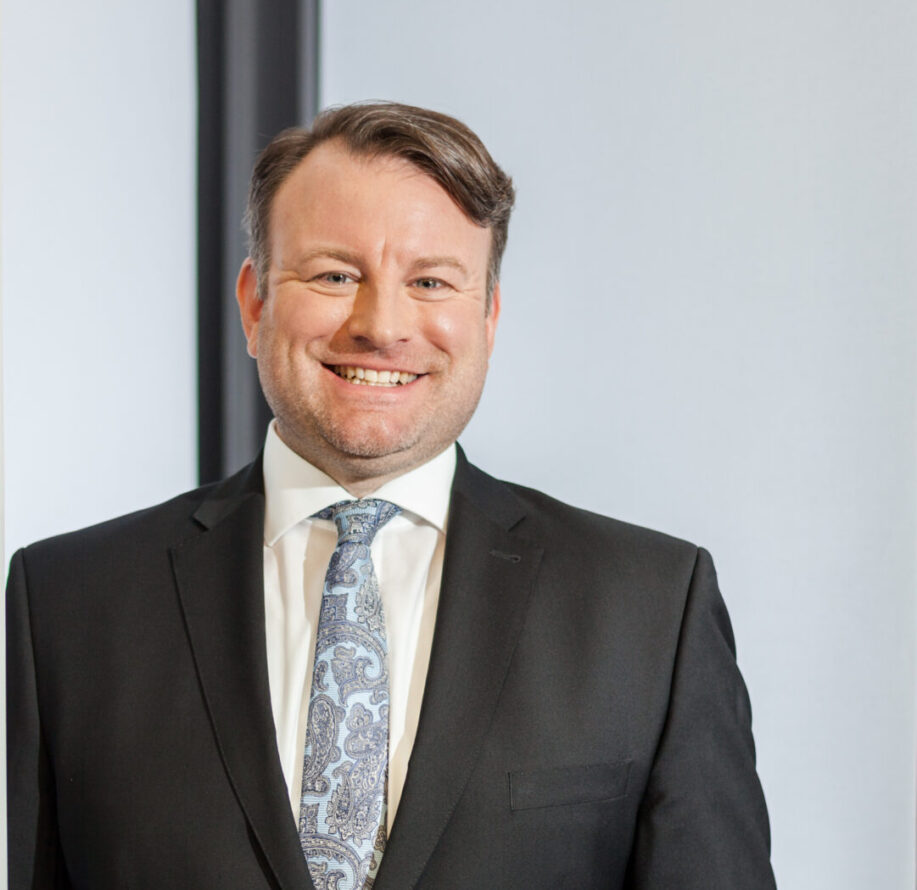
PROUT EMPLOYER ERGO
“I believe that in addition to the pure visibility that we achieve with pride networks, for example, other things are also important. We need to point out unconscious bias. We need gender inclusive language. ”
Markus Bader is 45 years old and lives with his partner in Hamburg. After studying business informatics, he joined Hamburg Mannheimer Versicherung, part of the ERGO Group, as IT coordinator in 2002. After 3 years he was able to take over a first management position as group leader in this area. In 2013 he had the opportunity to join a department manager position in ITERGO, the IT service provider of the ERGO Group. In 2018, he left IT with a step into business as division manager for Life Classic Operations.
As a leader at ERGO, what does it mean for you to advocate for more LGBT*IQ diversity and visibility?
Markus Bader: As a gay and outed executive, I think it’s important to advocate for more visibility and I’m glad that we’ve also had a pride network for a little over 2 years now and that I can get involved there. We know that there are still many LGBT*IQ people who decide against coming out in a professional context because they fear disadvantages. We need role models who make it clear that your choice of job and your career goals are not dependent on your sexual orientation.
What experiences in your career so far have shaped you in terms of LGBT*IQ?
Markus Bader: In fact, in the first (un-outed) years of my career, I had the experience that derogatory remarks were made about outed colleagues regarding their sexual orientation. Not always and often, but it happened. That definitely shaped me for the years to come. I didn’t feel ready to expose myself to that at the time. The confidence to come out to colleagues didn’t develop until a few years later. However, I never experienced rejection or disadvantages and to this day I am happy and grateful that I can be open with my sexuality with my employer. I was therefore all the more pleased that, in addition to the many other diversity issues, the topic of LGBT*IQ has also become an institution at ERGO with the Pride network.
You are committed to LGBT*IQ diversity at ERGO, to what extent do you receive support from your colleagues?
Markus Bader:
From my immediate colleagues, I feel the normality and matter-of-factness that my life model is met with is actually the strongest support. Today, I never have the feeling that someone avoids asking me how my summer vacation with my partner was, for example, just to avoid bringing up the subject. On the contrary – I experience just as much interest in my life and partnership as I do with others.
pride@ergo was founded by committed colleagues.
The Diversity Management Team has provided support from network building to the present day, and the godmother of our network is our Chief Human Resources Officer. This is an important contribution on the part of the employer and also shows me that the topic is important and is seen.
You were part of the PROUT Executives list in 2021 and 2022, congratulations again! What did that mean for you and how did you perceive the reactions?
Markus Bader: I was very happy about the positions on the Prout Executives list. For me personally, it was also an exciting process – I’m not very active on my social media channels, or rather a consumer than a creator. Sharing the list position on LinkedIn, among other places, was another new experience for me – and I received positive feedback without exception afterwards – from previously unknown people, from people I had lost sight of, but also from my immediate environment.
What specific actions for more LGBT*IQ diversity are you concerned about right now?
Markus Bader: I believe that in addition to the pure visibility that we achieve with pride networks, for example, other things are also important. We need to point out unconscious bias. We need gender-inclusive language. We have already revised the language and image of our brand presence at ERGO. This will certainly not happen overnight, but we have made a start, and ERGO must continue to develop.
Dear Markus Bader, thank you very much for the interview!
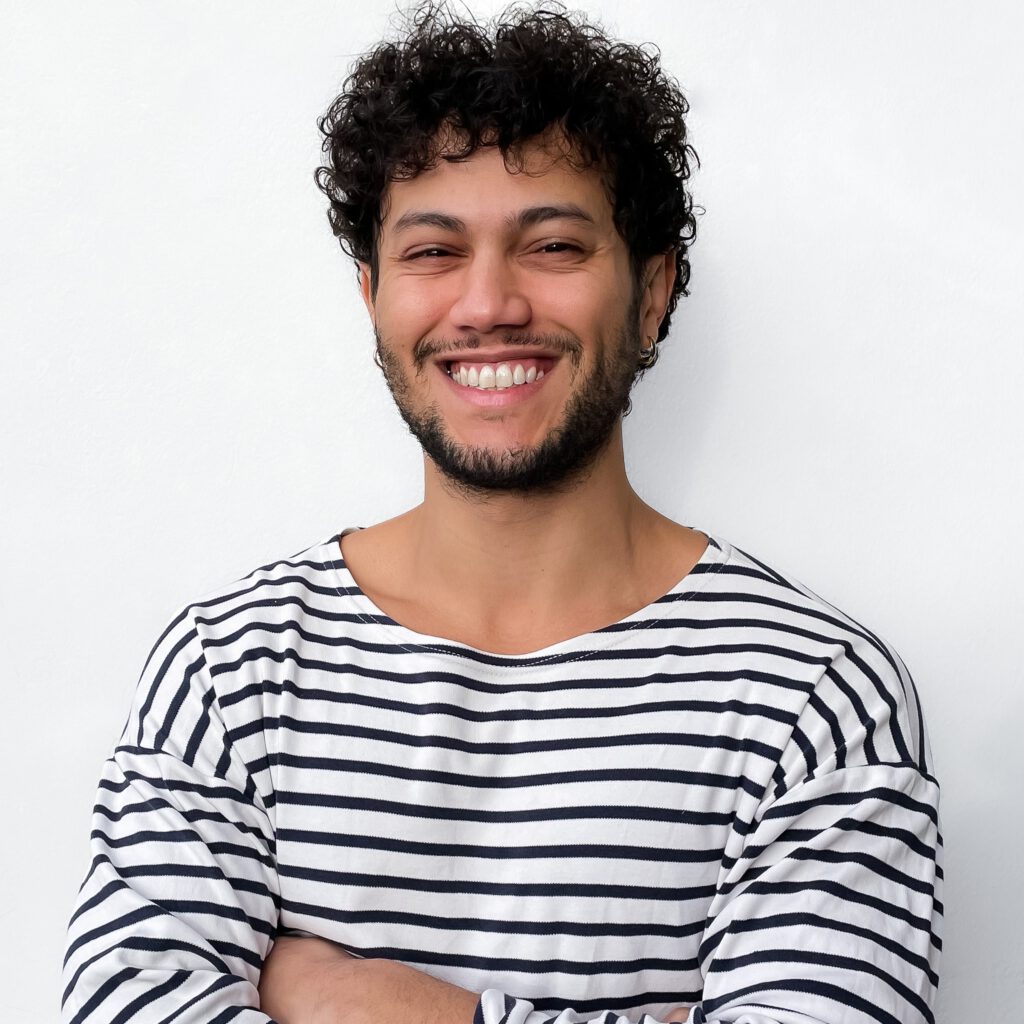
MYSTORY with …
Safir
31 Years, Berlin
“I forgot that I could afford flexibility,
experimentations and imperfections in my path;
that I could be living in intersections, in multitudes. …”
Published: December 2022
Identity Updates.
Quite recently, a friend of mine asked me over text: “Are you non-binary?”.
I laughed in front of my phone at first because to me, it was just the most obvious thing. My pronouns were displayed everywhere, from Instagram to Linked In, I would occasionally post the non-binary meme on Instagram, have my cute “they/them” in my work signature even; overally I live a pretty open life.
I also knew that this person didn’t mean any harm, the question came from a genuine place of interest and care. Yet, it remained hilarious to me because I realised one thing: I simply forgot to come out to her and despite all the signs, she actually wasn’t sure, because to her, I appeared to be a man.
I presented like a man, therefore I was one, right? I forgot that it was important to notify people of any “updates” on your gender, sexuality, religion, etc.
I got so used to displaying my identity that I eventually obliviated the fact that it needed updates once in a while and that it wasn’t in fact, so obvious. People had known me for years as Safir, Algerian, queer, gay, ex-Muslim, cisgender, able-bodied, immigrant, low-income, etc. Because it took me so many years to come to terms with how different I was going to be from everyone else in the world, I unconsciously “fixed” my identity the way some get fixed-term contracts.
I forgot that I could afford flexibility, experimentations and imperfections in my path; that I could be living in intersections, in multitudes.
There was no prerequisite for me to reduce who I was to fit any pre-created boxes.
As a result, my answer to the text was “Yes, I am. Let’s talk about it this weekend :)”. Following this exchange, I had to think about where I was at, as a person. Was I actually Algerian? Well, of course I was, but I had also figured out by now that I identified much better with my Amazigh and African roots overall than the regular national one.
Was I queer? This was pretty certain as well. Gay? Well this needed a bit of an update actually. I first came out as bisexual when I was 18 but people back then always told me I was gay so I accepted it as my fate without questioning it. Over 10 years later, I have to be clear about it: I am not gay. I am indeed closer to omnisexuality than to anything else but also accept to be called pansexual.
What about ex-Muslim? Tough one. I negated this part of me for such a long time because it felt like the part of me society hated the most (even more than my queerness, can you believe?). I can admit now that it was part of a very needed survival strategy to distance myself from how we were perceived worldwide. I was hoping it could offer me the chance to be treated better globally. In all honesty, years have taught me that no matter how far I stood from Muslim culture (from my culture) I would always and forever suffer from islamophobia so I could as well just embrace not only said heritage but also my faith. I also now try to approach Islam from an adult, non-judgmental perspective and I have to make a confession: there is some much beauty and peace in it.
Cisgender Safir? Well, this was a blatant lie. I always knew I didn’t fall under the binary-spectrum but lied to myself and to everyone else as it was too difficult to admit that I was going to “transgress” the common idea of what gender is, that most people wouldn’t ever understand it. It was such a liberating and joyful experience to talk to one of my best friends about it the first time. Their eyes opened and broadened with an incredible warmth. I told them gender to me was a construct I struggled to understand, that I neither felt like a man, nor like a woman; that I neither felt masculine, nor feminine; that I wasn’t feeling like a 50/50 but rather like none at all. While I understand how important gender is for some and respect it; I do not want gender to define me, I feel far from it, like it is of no importance to me. Today, I would call myself agender: a person who does actually not feel like they have a gender. My best friend received the news with a smile, a hug and a simple question: “Will you go by any specific pronoun from now on?”.
What about my non-disabled body? Up to now, I still agree with that statement but who knows what is going to happen in the future? I could write further about all the other sides of my identity, but I believe that by now, you get the image. Updates to me are necessary. Not only for others but mostly for yourself. As I regularly check myself up on how I feel within, I get to have a deeper understanding of who I am as an individual and as a part of my communities. There is so much power in knowledge.
Coming out for me was never (and won’t ever be) linear.
It still happens everyday: on Mondays about gender, on Wednesdays about sexuality. Most importantly, within me it changes every morning. Ever so slightly but with fluidity. Is my experience unique? Probably not. Is my experience universal, absolutely not! So should we expect anybody to live their experiences the same way we do? According to the Western ideology, it appears that everyone should come out.
Trust me, our sole experiences should never be made rules. Coming out is not obligatory. You can also live a beautiful, healthy and positive life without having to go through such intense momenta. Some of us won’t ever come out, and we shouldn’t police them. The way we embrace and empower ourselves, we should embrace and empower them in their own experiences as well.
